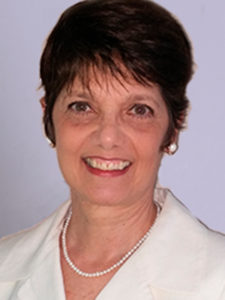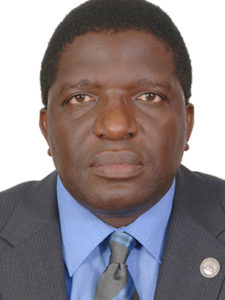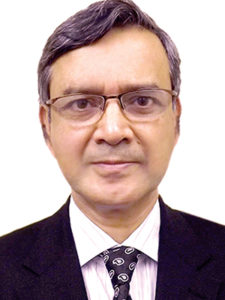
Patient education opportunities and initiatives around the globe are the topics of this year’s annual International League of Associations for Rheumatology (ILAR)session, Innovative Patient Education to Overcome Patient Barriers, from 2:30 – 3:30 pm Tuesday in Room W183c.
Representatives from ILAR partner associations will discuss the development of patient education in rheumatology, patient education needs in different regions of the world, and areas where rheumatology patient education differs significantly.
Cristina Drenkard, MD, PhD, Associate Professor of Medicine at Emory University and Assistant Professor of Epidemiology at Emory Rollins School of Public Health in Atlanta, GA, will discuss the contribution of social networks to patient education, including “Hablemos de Lupus,” a Facebook page used in the “Let’s Talk About Lupus” campaign.
Funded by ILAR and the Pan-American League of Associations for Rheumatology (PANLAR), the goal of Hablemos de Lupus is to fill the gap of health education that exists for Latin-American patients with lupus and their caregivers, through educational resources and a social community that guides their learning and responds to their self-management needs, Dr. Drenkard said.
“Because Latin America is the region with the highest social media penetration worldwide— 78 percent of internet users, compared with 65 percent and 55 percent in North America and Europe, respectively—social media has scalable potential to implement and disseminate low-cost public health education to target the Latin-American population with lupus,” Dr. Drenkard said. “The social media model was created under the principle of building a trustful, engaging, and empowering interaction to educate the audience through an ongoing and fluent dialogue between users and lupus educators.”
She said that after one year online, Hablemos de Lupus amassed more than 67,000 Facebook followers and has reached over 15 million people.
“As a step forward to provide deeper evidence-based information on lupus to the Spanish-speaking population, Hablemos de Lupus has recently launched a user-friendly website with contents prepared by rheumatologists from the large Latin American Group for the Study of Lupus consortium,” Dr. Drenkard said.

Patient education initiatives in Africa will be the topic of a presentation by G. Omondi Oyoo, MD, FACR, FRCP(Edin), Associate Professor in the Department of Clinical Medicine and Therapeutics, School of Medicine, University of Nairobi, Head of the Rheumatology Unit at Kenyatta National Hospital in Kenya, and a Past President of the African League of Associations for Rheumatology (AFLAR).
“While there is relatively little epidemiological data from sub-Saharan Africa on the prevalence and incidence of musculoskeletal conditions, data from the Global Burden of Disease study indicates that musculoskeletal conditions account for 19.2 percent years lived with disability in developing countries and 14.2 percent years lived with disability in Kenya,” Dr. Oyoo said. “In response to the need for improved access to musculoskeletal health care, a team of rheumatologists, patients, and researchers from the UK, Sweden, and Kenya have, through a process of consultation and discussion, developed the Uwezo Project.”
The goal of the Uwezo Project, Dr. Oyoo said, is to equip patients with basic skills of self-management and to train health providers in the diagnosis and delivery of basic treatment and management of common musculoskeletal conditions. Uwezo, which means “capability” in Kiswahili, has trained more than 600 community health care workers and 14 patient trainers, which has led to the establishment of patient support groups across 14 counties in Kenya.

The state of patient education initiatives in the Asia-Pacific region will be the topic of a presentation by Syed Atiqul Haq, MD, FRCP, FCPS, Professor in the Department of Rheumatology at Bangabandhu Sheikh Mujib Medical University in Dhaka, Bangladesh, and President-elect of the Asia-Pacific League of Associations for Rheumatology (APLAR).
“Owing to variable economic growth and development, population-to-doctor ratios and population-to-specialist ratios vary widely among the countries of Asia and Oceania,” Dr. Haq said. “Not unexpectedly, the quality and extent of coverage of patient education also varies considerably.”
To better understand the scope of patient education challenges, Dr. Haq said, leading rheumatologists among 30 national rheumatology organizations in the Asia-Pacific region received a questionnaire.
“In the more developed parts of Asia and Oceania, the survey showed that patient education is well organized, using diverse providers and diverse didactic methods, and that content coverage is optimum,” Dr. Haq said. “In the developing communities, however, education is inadequate, provided mostly by doctors themselves, utilizing a few minutes during the clinical encounter and occasionally with large groups. Unsatisfactory coverage has been attributed to the large workload of health care providers in these societies.”
Also during the ILAR session, Johannes W.J. Bijlsma, MD, PhD, Professor and Head of the Department of Rheumatology and Clinical Immunology at University Medical Center Utrecht, Netherlands, and President of the European League Against Rheumatism (EULAR), will discuss patient education programs offered through EULAR’s School of Rheumatology.
